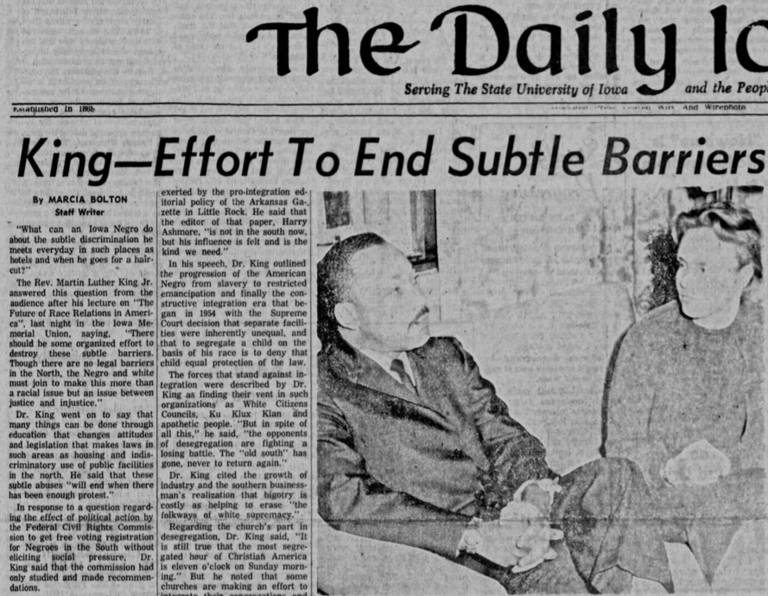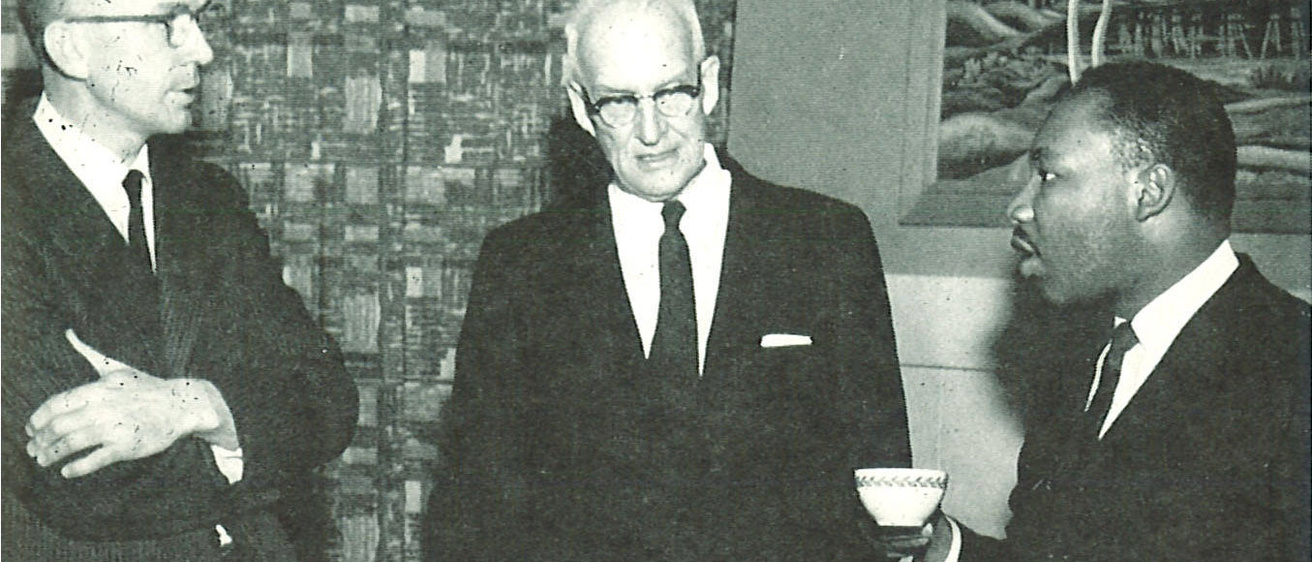Editor’s note: The Old Gold series provides a look at University of Iowa history and tradition through materials housed in University Archives, Department of Special Collections.
The emerging civil rights movement in the United States took center stage at the State University of Iowa on a November night in 1959. That evening, Rev. Martin Luther King Jr. delivered a historic address, “The Future of Race Relations in America,” to an overflow crowd in the Main Lounge of the Iowa Memorial Union.
Just four years before, Dr. King and other activists successfully organized a bus boycott in Montgomery, Alabama, pressuring the city to end its practice of racially segregating passengers. The Dexter Avenue Baptist Church, where King served as pastor from 1954 to 1960, was a focal point for the boycott and other social protests.

Though the boycott ended one practice of racism, many challenges remained then and continue today. At his Nov. 11, 1959, appearance in Iowa City, Dr. King recounted the progress that African Americans had accomplished at that point but stressed the obstacles that remained. He spoke of the growing backlash against efforts to integrate society, notably from the Ku Klux Klan and White Citizens’ Councils.
But while noting the violence perpetrated by these groups, Dr. King identified another enemy of social progress: apathy. His words to a northern audience were, as Old Gold hears them today, particularly compelling. He reminded his audience of the pervasiveness of discrimination, that it was not—is not—limited to the South.
Indeed, at the time of his visit, a controversy unfolded in an Iowa City neighborhood over a motorist’s use of an alley to access the garage of a rental home. For at least 20 years, tenants renting the house had used the alley with no complaints from neighbors. In the fall of 1959, however, soon after an African American family moved into the house, a nearby homeowner complained to the city, claiming that the alley was for the use of property owners only. The city relented, and the owner of the rental house was ordered to reorient the garage to open directly onto Muscatine Avenue.
The incident—and others—inspired a group of SUI students to form the Student Association for Racial Equality, or SARE, the following year. By 1964, SARE affiliated itself with the Student Nonviolent Coordinating Committee (SNCC), a civil rights organization that advocated for voter registration of African Americans in the South who had long been denied access to the ballot box.
Old Gold walks by the Muscatine Avenue alley often, usually on his way home from work, and wonders what became of the family that lived there. Dr. King’s address is as pertinent today as it was 57 years ago.
